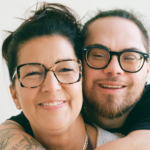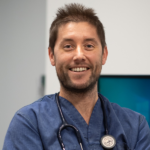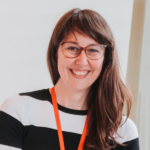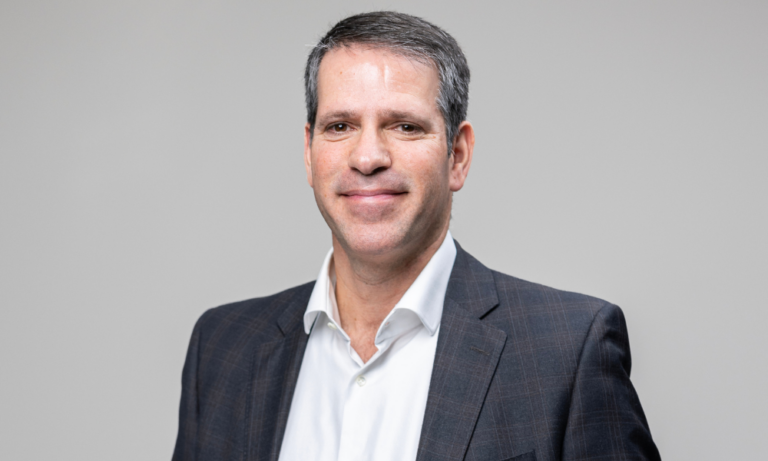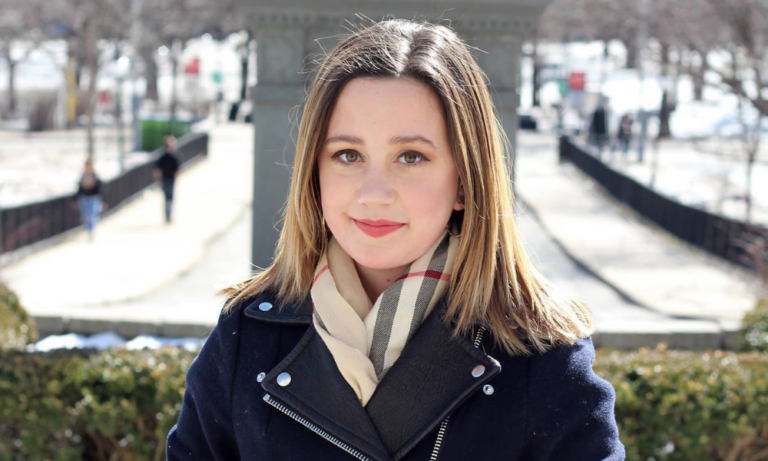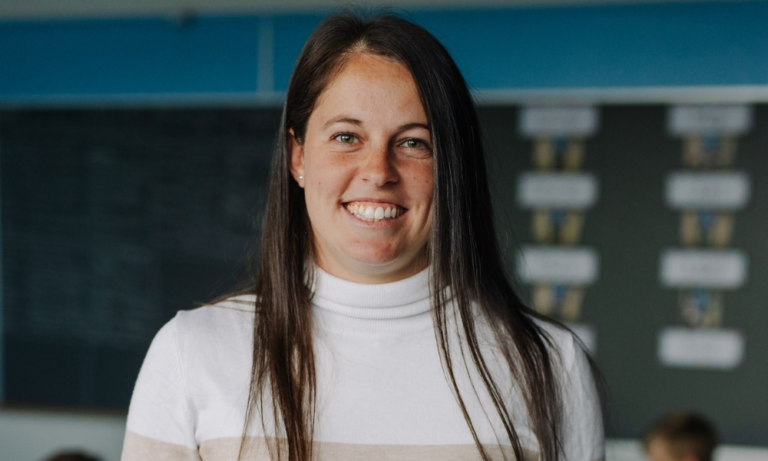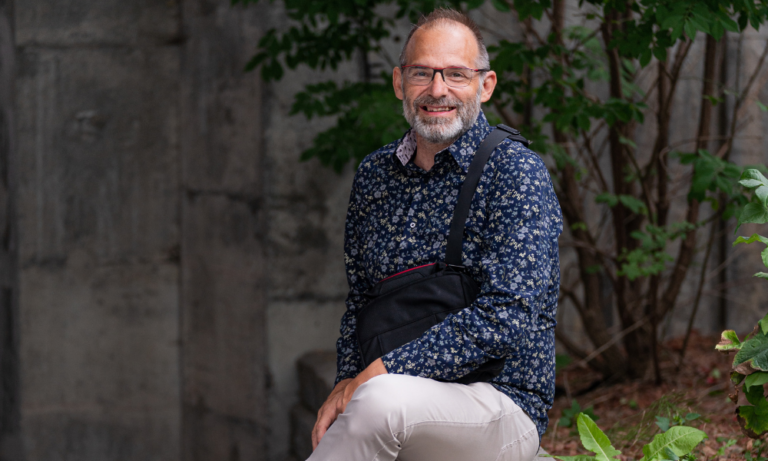Life after a massive cardiac arrest: Jarred Kotler’s life-changing story
Jarred Kotler, patient at the Montreal Heart Institute
Home > Blog > Life after a massive cardiac arrest: Jarred Kotler’s life-changing story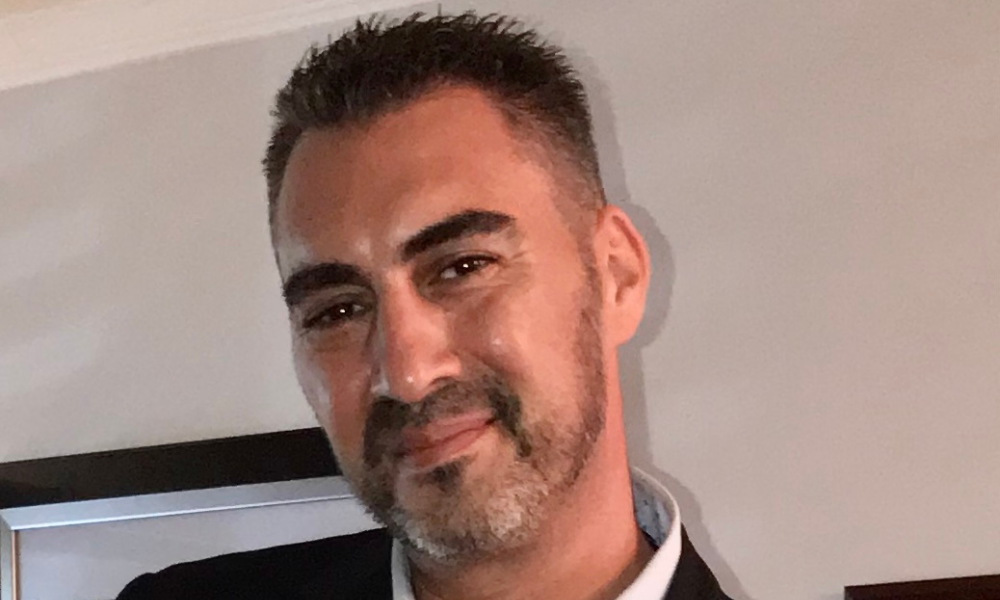
“On April 12, 2020—in the thick of the pandemic—as I was gardening with my wife and kids, I suddenly felt bad. Really bad. I felt like I was having indigestion. I didn’t have the classic ‘left-arm ache’ or ‘pressure on my chest ache,’ but I did feel really bad, suddenly. I got in the house, didn’t eat dinner with my family, stayed in my room, trying to rest. By 1 a.m., I still didn’t feel better. My wife took one look at my extremely pale face and said, ‘That’s it, I’m calling an ambulance.’ Right away they put me on a stretcher and told me, ‘Sir, you seem to be having a heart attack.’”
Jarred Kotler is answering some questions about his sudden heart attack and explains how the Montreal Heart Institute is helping him daily with his heart condition.
Your heart attack happened in the beginning of the pandemic. How did everything unfold?
“I was first taken to Lakeshore Hospital but was then redirected to Jewish General since Lakeshore became a designated response hospital. Once I got there, the doctors started putting stents on my left side, but when they tried to put one on my right side, I went flatline. My heart stopped beating for 2 ½ minutes. So I basically had two heart attacks: one on April 12 and one on April 13, 2020. They tried resuscitating me three or four times. Obviously, they succeeded.”
“They then put me on an ECMO (extracorporeal membrane oxygenation) machine to give my heart a break.” The ECMO machine is similar to the heart-lung bypass machine used in open-heart surgery. It pumps and oxygenates a patient’s blood outside the body, allowing the heart and lungs to rest.
“Afterwards, they transferred me to the Montreal Heart Institute. I stayed there for 3 ½ weeks behind a glass window with no visitors, no wife, no kids. It was hard. But the people at the hospital were spectacular. They all helped me leave before my 46th birthday, which is May 3.”
How is life after having a heart attack?
“I’ve always been very active, eating well, and playing sports like hockey. Both sides of my family have known heart conditions, so I’ve always been aware, but still, I never got checked… I really should have. Everyone should get checked out regularly by their doctors.”
“I remember them telling me when I woke up that I’m now living on one third of a heart and that I’ll also need a bunch of pills for the rest of my life. That’s my new reality.”
What was your involvement in the hockey fundraiser?
“I got involved in the fundraiser through my friend, Robert Cressaty. He came to me with the idea of the hockey fundraiser because his friend Brad Davis had died of a heart attack in October 2021. Through our community, I had heard about Brad’s story, but I didn’t know him personally. I said, ‘Sure, but only if the money goes to my hospital, the Montreal Heart Institute. Their technology and expertise were able to save my life.’ Robert agreed. I got involved. So that’s how it all started.”
Why are the Montreal Heart Institute Foundation and the EPIC Centre important to you?
“I will always keep giving to the Montreal Heart Institute Foundation. Why? To give back. Because they gave (and still give) me and my family so much.”
Since May 2020, Jarred Kotler has been monitored by an army of 11 doctors and many caregivers at the Montreal Heart Institute—and this will continue for the rest of his life. “I went every week for months, and now I get monthly checkups. I know everyone there. They are literally my second family. Even when my father was admitted to the hospital for a heart condition, the doctor asked, ‘Mr. Kotler, are you related to Jarred Kotler?’ That’s how much they all know me!”
Every year before his heart attack, Jarred Kotler used to go on a yearly canoe trip with his friends. He talked to his doctors about going back in 2022 and, after a few tests, they said yes (without promising that there was zero risk). Jarred trained at the EPIC Centre. “It was quite an adventure, but I did it!”
“I used to say, ‘You only live once,’ but now I say, ‘You live every day’—and every day, you just have to make it count.”
Want to get involved with the Foundation?
Start organizing your fundraising activity


